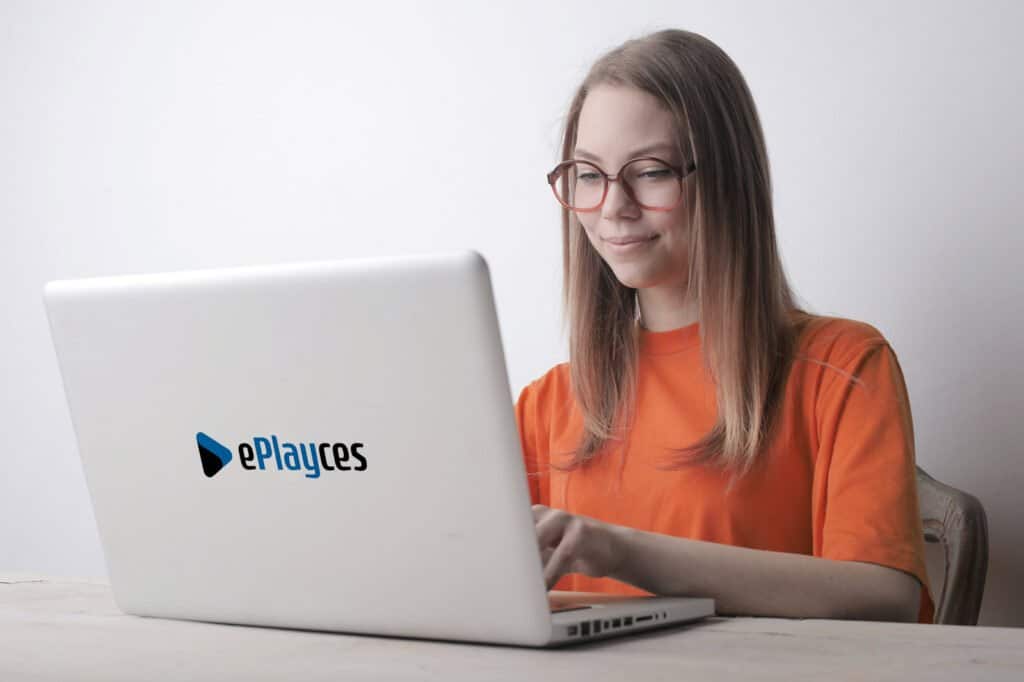Serious gaming – explained simply
Process optimization, training and job interviews are often dull and dusty. Some employees and candidates are nevertheless eager to participate, while others just yawn in boredom, roll their eyes and participate reservedly. When advanced training, education and recruiting processes are designed without entertaining components, their success is often missing. Some companies are therefore looking for exciting and effective methods to train their employees or select new ones in the application process. The keyword of the hour is serious gaming! It means fun and action in learning, training and recruitment – without being subjected to dull lectures and boring questions. What exactly is serious gaming and what are the advantages? We have put together some exciting answers for you on this topic.
What is serious gaming?
Serious gaming is a fun and entertaining way to impart knowledge and skills. Sounds like a win-win situation for bosses and employees alike, doesn’t it? With a serious game, instructive content is built in an exciting story and brought closer to colleagues while having fun playing the game. An example: You want to get your employees excited about the company’s history? If you rely on monotonous yearly figures, you will most likely put even the most interested employee to sleep. Instead, send your employees on a search for clues and show them how tricky it was to maneuver the company through a crisis or how exciting and nerve-wracking it felt to completely conquer a well-established market. We are sure that your employees will then see the company with completely new eyes.
What are the objectives of serious gaming?
Playing a video game with colleagues or other applicants and learning new things in the process – that sounds like a good plan? Serious gaming helps players gain specific skills, efficiently absorb new knowledge and achieve long-term learning success. Serious gaming can be used, for example, to train and test topics such as decision-making, critical thinking, communication skills, leadership, personnel management or productivity.
In which areas can serious gaming be used?
Serious games are used in a wide variety of areas and industries. They are aimed at different target groups and are designed for different age groups. It goes without saying that a game for trainees is designed differently than a game for experienced managers. Good to know: There are (almost) no limits to your creativity as a company when you work on your game together with the game developers.
Is serious gaming suitable for assessment centers?
Absolutely. Clever recruiters naturally like to see their applicants in action. Serious gaming is a perfect tool to see how skilled the applicant really is at programming, whether the new manager can demonstrate excellent leadership qualities only on paper, and how friendly the potential customer service employee really is in stressful situations. The benefits of serious gaming for the field of human resources are so diverse that we have even dedicated a separate blog post to this topic.
The advantages of serious gaming for companies
You are probably primarily concerned with the question of what general advantages serious gaming brings to your company. We have put them together for you:
Advantage 1: Individualization options
“But things work quite differently at our company.” Statements like these are familiar to everyone from meetings, training sessions and seminars. However, anyone who has a serious game developed can tailor it perfectly to the individual company’s needs and obtain a product that specifically promotes or seeks the desired skills.
Advantage 2: Increase economic efficiency
The use of serious gaming can spare resources in the company. In addition, they offer the opportunity to standardize and simplify recurring processes. For example, a serious game can be used in the onboarding process – meaning that no experienced employee has to take over the full training of the new colleague.
Advantage 3: Achieve measurable results
All information collected during the game is immediately available and traceable. It is available to you as structured data – making it easier to measure learning successes and select applicants in a targeted manner.
Advantage 4: Promote collaborative learning
It’s easier to learn together: In serious games, employees or applicants usually work in teams. They solve a task together, cooperate with each other and thus reach the goal. This strengthens team cohesion and creates satisfaction among the players.
The disadvantages of serious gaming
We must admit that serious gaming also has some disadvantages. We have prepared these for you as well.
Disadvantage 1: Wrong expectations of the employees
We don’t want to spoil it, but serious gaming is not just about having fun playing games; learning is always in the foreground. If employees expect a game party with friends, they will probably be disappointed. Serious gaming is also certainly not a highlight for every employee. Some employees prefer to listen to the voice of the presenter rather than enter the fray themselves.
Disadvantage 2: The costs
Developing your own serious game for the company is pretty cool, but it also comes with a cost. Therefore, the games are more suitable for larger companies that can use the game for a large number of employees and thus recoup the costs.

Any more questions?
Do you have questions about serious gaming or would you like to develop your own serious game? We are happy to assist you and look forward to hearing from you.

